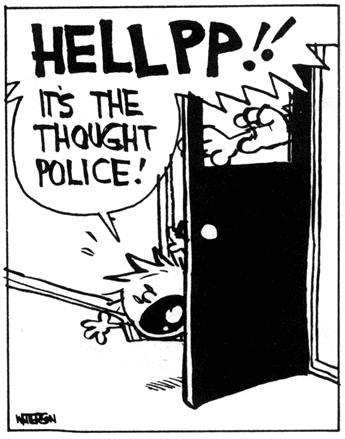
-
The smart folks at Harvard are doing something stupid this year,
as reported
by the Foundation for Individual Rights in Education:
Administrators at Harvard College are pressuring the Class of 2015 to do something no other student class has ever been asked to do in 375 years: Sign a civility pledge.
The pledge is full of feelgood vagueness, Computer Science professor (and ex-Dean) Harry Lewis posted a finely-worded dissent on his blog, worth reading in full. I liked this:
On the face of it the pledge is so benign that one might reasonably accuse me of making a mountain out of a molehill. But the right to be annoying is precious, as is the right to think unkind thoughts. Harvard should not condone the sacrifice of rights to speech and thought simply because they can be inconvenient in a residential college. In the words of a U.S. Supreme Court decision in a case involving compulsory flag salutes, "Struggles to coerce uniformity of sentiment in support of some end thought essential to their time and country have been waged by many good as well as by evil men. … As first and moderate methods to attain unity have failed, those bent on its accomplishment must resort to an ever-increasing severity. … Those who begin coercive elimination of dissent soon find themselves exterminating dissenters. Compulsory unification of opinion achieves only the unanimity of the graveyard."Good advice.
-
If you want to read only one living Nobel economics laureate about current
events, might I suggest Gary
Becker? For example, on the "Great Recession":
This recession might well have been a deep one even with good government policies, but "government failure" added greatly to its length and severity, including its continuation to the present. In the U.S., these government actions include an almost $1 trillion in federal spending that was supposed to stimulate the economy. Leading government economists, backed up by essentially no evidence, argued that this spending would stimulate the economy by enough to reduce unemployment rates to under 8%.
Such predictions have been so far off the mark as to be embarrassing. Although definitive studies are not yet available about the stimulus package's overall effects on the American economy, most everyone agrees that it was badly designed and executed. What the stimulus did produce is a sizable expansion of the federal deficit and debt.
Let's keep that in mind while the folks who brought you the previous Grand Government Scheme bring you the next one.
![[The Blogger and His Dog]](/ps/images/me_with_barney.jpg)



